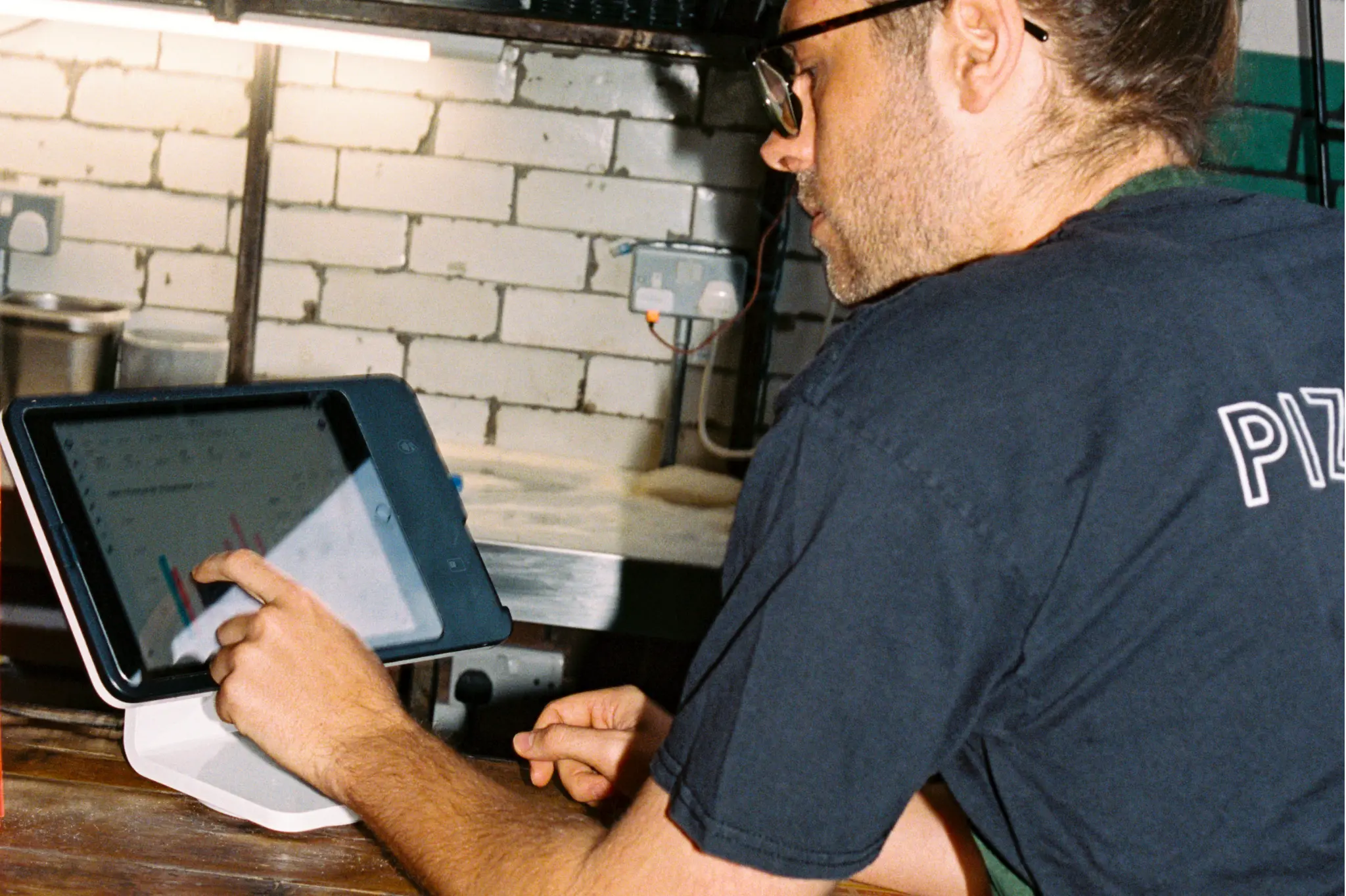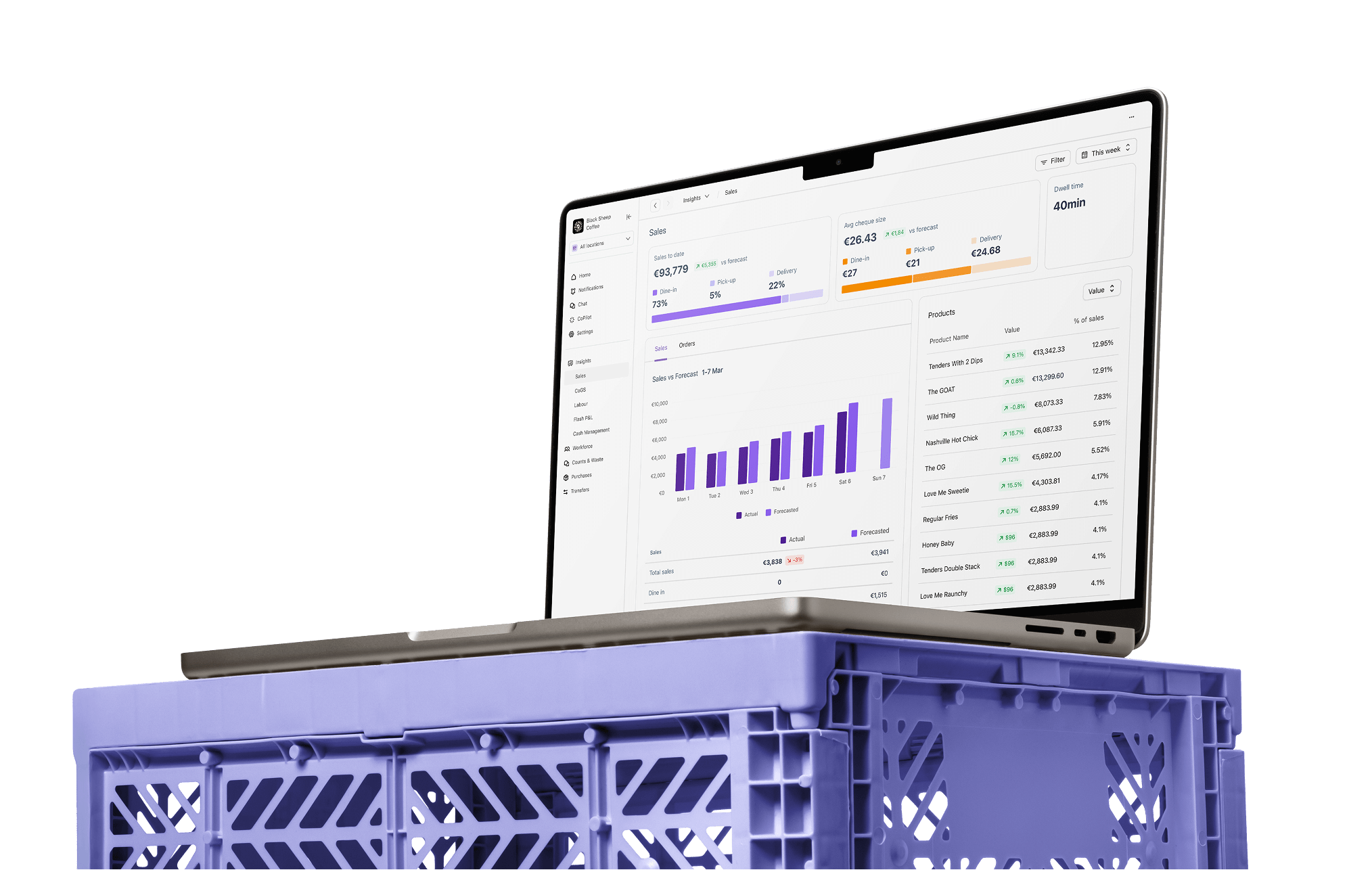Restaurant manager duties and responsibilities: Leading teams, driving success
A restaurant manager is the heartbeat of day-to-day operations. They keep the business running smoothly, balancing the demands of staffing, guest experience, budgeting, and compliance — often all in a single shift.
The role is far more than ticking off tasks. Today’s best restaurant managers are leaders, strategists, and problem-solvers who use technology to create consistency, empower their teams, and make data-driven decisions.
In this guide, we’ll explore the key responsibilities of a restaurant manager, the evolving skill set required for success, and how smart tools like Nory can make the job more efficient, impactful, and sustainable.

Core responsibilities of a restaurant manager
While the daily duties may vary depending on your service model and size, most restaurant managers oversee five main areas:
1. Staffing and Scheduling
Managers ensure the right people are in the right place at the right time. This includes hiring, onboarding, and creating schedules that balance labour costs with service quality.
With Nory’s Workforce Management, managers can forecast demand, fill shift gaps, and update schedules in real time — reducing last-minute scrambles.
2. Inventory Oversight
From monitoring par levels to preventing waste, managers play a crucial role in keeping stock levels balanced. Poor inventory control can drive up food costs and hurt margins.
Related: Strategies for Controlling Restaurant Food Costs
3. Customer Experience and Service Recovery
A restaurant manager is the final safeguard for guest satisfaction. They resolve complaints, check in with tables, and ensure every shift meets the brand’s service standards.
Read more: Delivering Excellent Restaurant Customer Service
4. Budgeting, Cost Control, and Reporting
Managers track sales, labour costs, and expenses to ensure profitability. They prepare daily reports for ownership and identify areas for improvement using KPIs.
5. Compliance and Safety
From health and safety inspections to licensing and labour laws, managers ensure the restaurant meets all regulatory requirements.
The evolving skill set of a great restaurant manager
The modern restaurant manager’s role has shifted from reactive to proactive — and from purely operational to highly strategic. Today’s top managers excel in:
- Emotional Intelligence: Building trust, resolving conflicts, and motivating teams.
- Tech Literacy: Using systems like Nory for scheduling, reporting, and communication.
- Coaching and Feedback: Developing staff through structured reviews and ongoing training.
- Time Management: Staying productive in a high-pressure, multi-tasking environment
Related: Effective Staff Training for Restaurants
Smart tools that support modern managers
Modern managers don’t have to do it all manually. Here’s how Nory supports every part of the role:
- Scheduling: Create shifts, forecast labour demand, and get alerts when coverage is low.
- Communication: Share updates, collect feedback, and run “digital huddles” that keep everyone aligned.
- Reporting: View real-time dashboards showing sales, labour %, and costs.
- Recognition: Identify and celebrate top-performing staff.

How restaurant managers drive business growth
A great restaurant manager doesn’t just maintain operations — they actively grow the business by:
- Creating consistency across shifts and locations.
- Building high-performing teams with low turnover. Read more: How to Reduce Restaurant Staff Turnover
- Using data to find inefficiencies and improve margins.
- Driving guest loyalty through memorable service.
- Making decisions based on insight, not guesswork.
Developing as a restaurant leader
Ambitious managers can grow into general managers, area managers, or even multi-unit operators. Key development steps include:
- Cross-Training: Understanding FOH, BOH, finance, and HR.
- Mentorship: Learning from experienced leaders inside and outside the organisation.
- Upskilling: Using tools like Nory to gain efficiency and data insights.
- Formal Training: Pursuing leadership or hospitality management certifications.

Conclusion: A people-first, impact-driven role
A restaurant manager’s responsibilities are wide-ranging — but with the right structure, skills, and tools, the role becomes less about firefighting and more about leading a thriving team.
With Nory, managers can spend less time buried in admin and more time building culture, improving service, and driving growth.
Next steps
- Review your current responsibilities — where could tech save you time?
- Explore Nory’s workforce and performance tools.
- Book a demo with Nory to see how it can transform your management workflow.
Restaurant Manager FAQs
What does a restaurant manager do?
A restaurant manager oversees daily operations, including staffing, scheduling, inventory management, customer service, budgeting, and compliance. They act as the bridge between ownership, staff, and guests, ensuring smooth service and business performance.
What are the main responsibilities of a restaurant manager?
Core responsibilities include hiring and training staff, creating schedules, monitoring inventory, handling customer complaints, tracking budgets, and ensuring safety and compliance. Managers also work to improve efficiency, maintain service standards, and drive profitability.
What skills are important for a restaurant manager?
Successful managers have strong leadership, communication, and problem-solving skills. Modern managers also need tech literacy to use tools like Nory for scheduling, performance tracking, and reporting, as well as emotional intelligence to lead teams effectively.
How can technology help restaurant managers?
Technology can streamline time-consuming admin tasks like scheduling, reporting, and communication. Platforms like Nory give managers real-time visibility over staffing, costs, and performance, allowing them to focus on leadership and guest experience.
How can a restaurant manager advance their career?
Managers can grow into general manager, area manager, or multi-site operator roles by expanding their knowledge across FOH, BOH, finance, and HR. Mentorship, cross-training, and leadership courses, combined with the use of modern management tools, can fast-track career growth.


.webp)
.webp)


